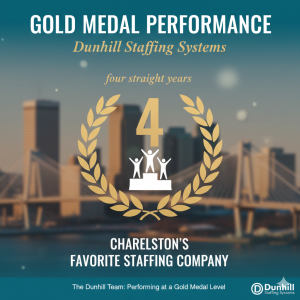Facing a layoff can be one of life’s most challenging experiences. The unexpected loss of a job can lead to feelings of uncertainty, anxiety, and stress. However, this transition can also serve as a springboard for new opportunities and personal growth. If you find yourself in this situation, it’s essential to shift your mindset from seeing a layoff as a setback to viewing it as an opportunity for career resilience. Here’s a comprehensive action plan to help you navigate this journey.
Understand Your Emotions
The first step towards building resilience after a layoff is to acknowledge and understand your emotions. It’s completely normal to feel a mix of feelings—shock, sadness, anger, or even relief. Allow yourself some time to process these emotions. Journaling can be an excellent way to articulate your thoughts, making it easier to move forward. Remember, it’s okay to seek support from friends, family, or professionals who can help guide you through this emotional landscape. Recognizing your feelings is the first stepping stone on the path to career rejuvenation.
Assess Your Skills and Interests
After taking a moment to breathe, it’s time to get practical. Conduct a thorough self-assessment of your skills, strengths, and areas of interest. What have you learned in your previous job that you can leverage in your next role? Consider not just technical skills but also soft skills like communication, teamwork, and adaptability. Identifying these attributes will empower you to speak confidently in interviews and polish your resume. Additionally, think about what you’re passionate about—aligning your career with your interests can lead to greater job satisfaction in the long run. Here’s a link to a self assessment tool you can do on your own.
Reinvent Your Resume and Online Presence
Your resume is often your first introduction to potential employers, so it’s crucial to make it shine. Tailor your resume to highlight achievements rather than just listing duties. Use quantifiable metrics to showcase your impact in previous roles, such as revenue increases, customer satisfaction scores, or project completions. Alongside your resume, don’t forget to update your LinkedIn profile. This platform serves not only as a resume but as a professional brand. Engage with industry-related content, join relevant groups, and connect with former colleagues to build a network of support and opportunity.
Network Like a Pro
Networking might feel daunting, but it is one of the most effective strategies during a career transition. Reach out to former colleagues, attend industry meetups, and join online forums related to your field. Many opportunities arise from referrals and personal connections. Don’t hesitate to inform your network that you are looking for new opportunities; you’d be surprised how often others want to help. Consider informational interviews as well—these can provide valuable insights into different companies and roles while expanding your network. Remember, every conversation is a chance to learn something new!
Embrace Lifelong Learning
To stay competitive in today’s ever-evolving job market, embrace the concept of lifelong learning. Consider enrolling in online courses or workshops to enhance your skill set. There are numerous free or low-cost resources available, ranging from platforms like Coursera and edX to community college courses. Acquiring new skills not only boosts your resume but also increases your confidence. Additionally, staying informed about industry trends can position you as a knowledgeable candidate in interviews and networking events.
Turning a layoff into an opportunity requires resilience, adaptability, and a proactive approach. While it might seem overwhelming at first, remember that many people have successfully navigated similar transitions and emerged stronger. By understanding your emotions, assessing your skills, reinventing your resume, networking effectively, and embracing lifelong learning, you can carve out a path toward a fulfilling career. The key is to take actionable steps each day, no matter how small, and remain open to the possibilities that lie ahead.
In conclusion, a layoff doesn’t signify the end of your professional journey; instead, it opens doors to new chapters. With the right mindset and action plan, you can turn adversity into opportunity and come out on the other side more resilient than ever. So dust off that old resume, reach out to your network, and start learning—you’ve got this!
If you suddenly find your self out of work, please check out Dunhill’s job page to see if we have a suitable opportunity for you. Good luck!







